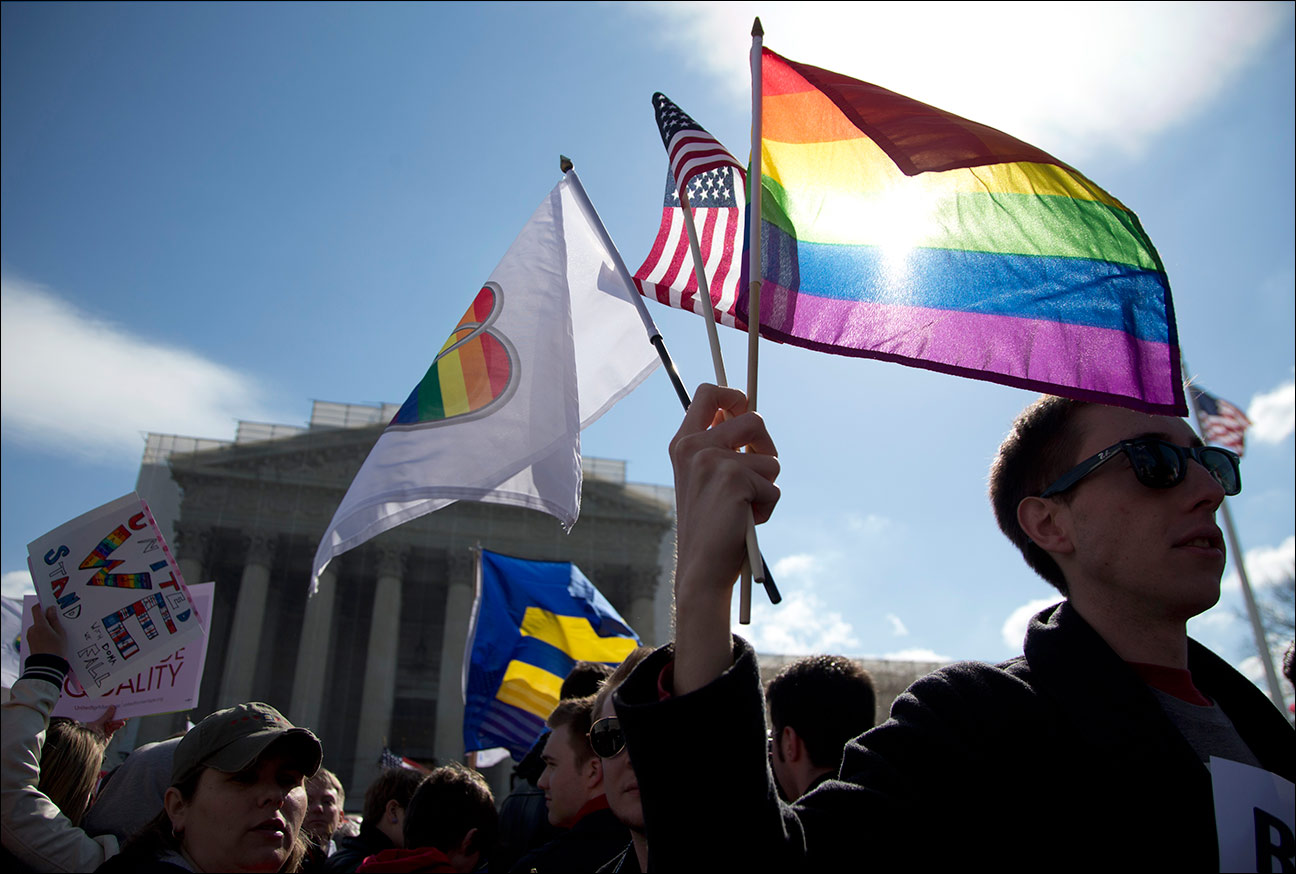Recent Articles from KIMBERLY ATKINS, BridgeTower Media Newswires
Proposed FMLA regulation would require benefits for same-sex couples
A proposed federal regulation requiring employers to provide legally-married same-sex couples with benefits under the Family and Medical Leave Act regardless of their employees' state of residence could help clear up some complications caused by conflicting federal and state laws.
Background-check guidance attracting renewed scrutiny
Two years after the U.S. Equal Employment Opportunity Commission issued a guidance warning employers against the overly-broad use of criminal background checks to screen potential new hires, it is drawing renewed criticism from employers, business groups and lawmakers who say it is cumbersome at best and dangerous at worst.
Hobby Lobby ruling bodes well for nonprofits also challenging law
In a blow to the Obama administration that may hint at how a similar challenge will play out next year, the U.S. Supreme Court held Monday that the Affordable Care Act’s requirement that employer-funded health care plans cover certain contraceptives at no cost to employees violates the rights of religious owners of closely-held private companies.
Recess appointment ruling could spur NLRB delays, congressional gridlock
The U.S. Supreme Court decision striking down President Barack Obama’s 2012 recess appointments to the National Labor Relations Board invalidated hundreds of rulings made by the board over an 18-month period.
High court false advertising case rejects preemption defense
The legal food fight between a fruit juice manufacturer and soft drink conglomerate Coca-Cola Co. will continue in federal court now that the U.S. Supreme Court has ruled that a false advertising claim was not precluded by federal law.
Defense bar urges caution after justices’ ‘straw buyer’ ruling
This week’s ruling from the U.S. Supreme Court holding that a man who bought a firearm on behalf of another qualified buyer violated a federal law barring “straw purchases” of guns may be limited to its facts.
US Supreme Court ruling could spur new legislation
The U.S. Supreme Court recently held that preemption language in the Comprehensive Environmental Response, Compensation and Liability Act aimed at overriding state statutes of limitation does not extend to statutes of repose.
New US high court rulings could create problems for ‘patent trolls’
The U.S. Supreme Court has handed down a pair of decisions that could make it more difficult to bring patent infringement claims in some circumstances, further hampering suits brought by so-called “patent trolls.”
Police chase case raises concerns among defense bar
The U.S. Supreme Court’s ruling that police did not violate the Fourth Amendment by shooting more than a dozen rounds into the car of a fleeing unarmed suspect is making defense attorneys and civil liberties advocates uneasy.
‘Raging Bull’ copyright ruling may KO common defense in patent, other cases
A recent U.S. Supreme Court ruling involving a classic Hollywood film may have dealt a knockout punch to a commonly used affirmative defense in a much broader range of cases, including patent litigation.
Defense lawyers fear slippery slope after US high court’s anonymous call ruling
Criminal defense attorneys are expressing concerns about a recent decision from the U.S. Supreme Court holding that a vehicle search based on an anonymous 911 call was constitutional.
Affirmative action ruling adds new twist to same-sex marriage challenges
The recent U.S. Supreme Court ruling upholding a state law barring the consideration of race in public university admission decisions is having an immediate effect on a set of closely watched appeals involving an entirely different issue: the constitutionality of state same-sex marriage bans.
Legal News
- Wisconsin attorney loses law license, ordered to pay $16K fine
- Former Wisconsin police officer charged with 5 bestiality felony counts
- Judge reject’s Trump’s bid for a new trial in $83.3 million E. Jean Carroll defamation case
- Dozens of deaths reveal risks of injecting sedatives into people restrained by police
- The Latest: Supreme Court arguments conclude in Trump immunity case
- Net neutrality restored as FCC votes to regulate internet providers
- Wisconsin Attorney General asks Congress to expand reproductive health services
- Attorney General Kaul releases update at three-year anniversary of clergy and faith leader abuse initiative
- State Bar leaders remain deeply divided over special purpose trust
- Former Wisconsin college chancellor fired over porn career is fighting to keep his faculty post
- Pecker says he pledged to be Trump campaign’s ‘eyes and ears’ during 2016 race
- A conservative quest to limit diversity programs gains momentum in states
WLJ People
- Power 30 Personal Injury Attorneys – Russell Nicolet
- Power 30 Personal Injury Attorneys – Benjamin Nicolet
- Power 30 Personal Injury Attorneys – Dustin T. Woehl
- Power 30 Personal Injury Attorneys – Katherine Metzger
- Power 30 Personal Injury Attorneys – Joseph Ryan
- Power 30 Personal Injury Attorneys – James M. Ryan
- Power 30 Personal Injury Attorneys – Dana Wachs
- Power 30 Personal Injury Attorneys – Mark L. Thomsen
- Power 30 Personal Injury Attorneys – Matthew Lein
- Power 30 Personal Injury Attorneys – Jeffrey A. Pitman
- Power 30 Personal Injury Attorneys – William Pemberton
- Power 30 Personal Injury Attorneys – Howard S. Sicula




